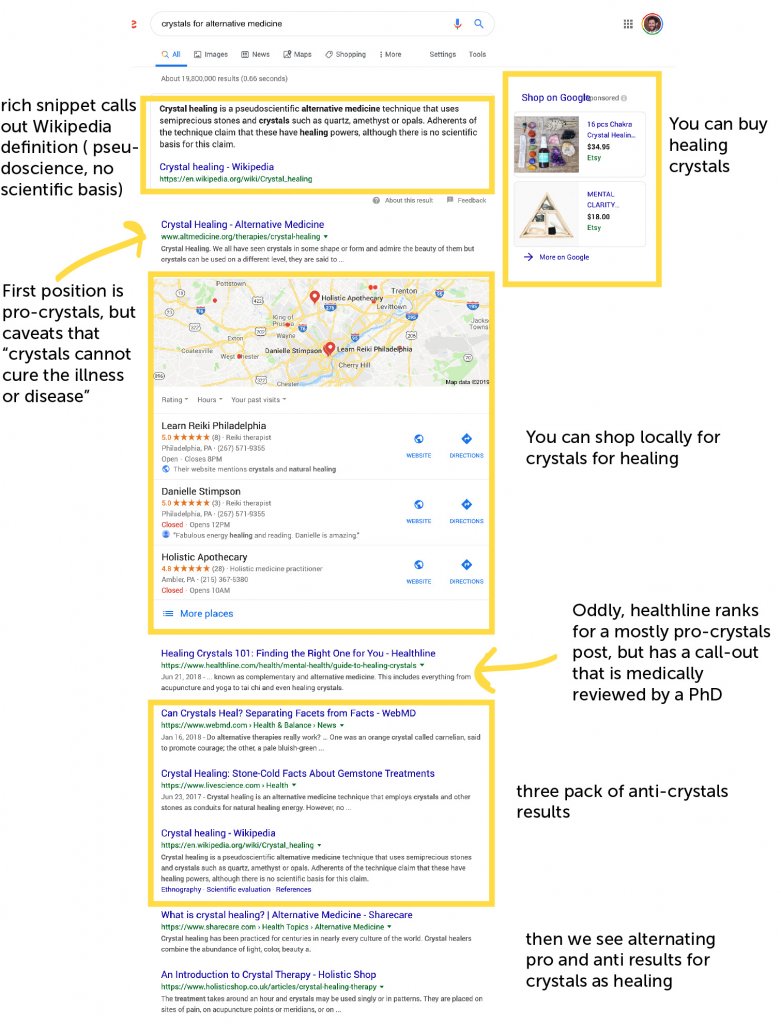This is a continuation of the Understanding the New SEO series.
SEO was always a no-brainer. It’s where a majority of new user traffic comes from. But now you must consider what, if any, effort goes into SEO for your subject matter expertise based on how Google is treating your subject matter.
Health, Wellness, and Medicine
If you sell crystals for alternative medicine purposes, you should probably completely remove any solving for commercial or transactional search intent from your SEO strategy and consider seriously diversifying your traffic sources.
Why? Because this is what search results pages look like for solutions Google has decided have no scientific basis.

To be fair, most people think this example (crystals) is hocus pocus. BUT there is research-based evidence supporting its efficacy for people who believe in it and placebo effects are still just that, effects.
Maybe this seems like an outlier example, but there is a scale of what is considered accurate or factual and if you discuss important topics, you have to consider where your content falls on it:
- has either little to no scientific supporting evidence – this could mean
- established fields like cranial sacral therapy or cutting edge technologies, medicines, treatment approaches,
- newly repurposing existing approaches for new applications
- insufficient research exists because insufficient medical interest exists
- contradictory findings exist reducing the likelihood Google will serve your expert content over something like healthline or webmd
- inconsistent research results for some applications
- inconsistent research results for most applications
- shown to work but only under certain conditions with most evidence showing lack of efficacy for most conditions
- shown to work but…
- deemed to fall short of efficacy of alternatives
- considered inferior to more widely medically accepted alternatives
- potential demographic bias if not “Western” in origin
And we’re not talking about pure quackery here.
Any alternative medicine is going to fit on one of the above categories including:
- chiropractic and osteopathic medicine
- cranial sacral therapy
- meditation
- certain tools of physical therapy: TENS, traction, therapeutic massage
- massage therapy for chronic back pain
- acupressure, acupuncture
When we consider efficacy it’s a what-treatment-for-what-ailment comparison to alternatives.
The point is that it’s all incredibly complex and Google is not yet sophisticated enough to account for that complexity, so it has to rely on signals that are likely overwhelmed by conventional thinking and what’s widely believed to be the status quo.
This is a concern for any innovative treatments. A breakthrough in any field could potentially see a longer time to acceptance or outright rejection due to old data signals.
Originally I thought this meant: if your subject matter is important, you need to back it up with data, real research, establish your authority through getting those research findings disseminated, and in general cultivating what we traditionally think of as authority in search (based on links).
But now primary research needs to be tempered with what’s considered factually accurate.
Or, I guess, you need to start thinking hard about where else you’re going to get traffic from.
